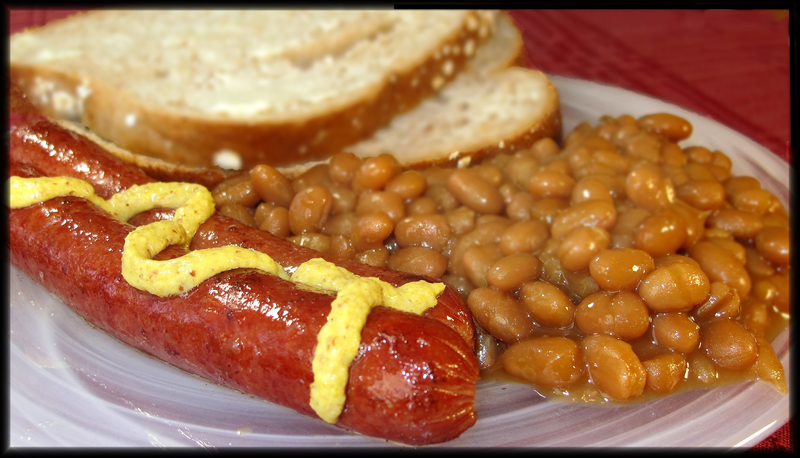The idea for this column came from an ingredient emergency. I’d advertised to Jack that we’d be having Caesar salad for dinner and then discovered we had no fresh garlic. All I found in the perforated stoneware jar we keep on the counter were papery skins. Since garlic is the backbone of my Caesar dressing, I was temporarily stymied.
The spice cabinet beckoned, and I considered the container of minced garlic. Being described on the label as “dehydrated” made it seem a workable option. I sprinkled some into the salad bowl and mixed in enough olive oil to cover. Adding a splash of vinegar for more moisture, I left the dried bits to resume their normal size, shape and (hopefully) bite.
Not only was the garlic supply depleted, but we were also out of the other source of bold flavor in Caesar dressing - Dijon mustard. The yellow stuff in the refrigerator was out of the question, too mild to do the job. We did have some deli mustard, but the amount of turmeric in the mixture wasn’t to my taste.
Once again, the spice cabinet called to me, and I located the tin of mustard powder. Prepared mustard, whether Dijon or ballpark, is made from powdered mustard (ground mustard seeds), seasonings and liquid. The last ingredient can be beer, wine, vinegar or water. Since the mustard powder wasn’t prepared, the amount in the dressing recipe needed to be modified.
When I told Jack about my plans for a second substitution, he offered me a cautionary tale from his days as a college student living with several other guys in a large apartment. They took turns making dinner each day, rotating through such delicacies as spaghetti and fried frozen fish sticks. Jack’s most memorable meal was a one-pot concoction of hot dogs and baked beans.
He followed the recipe printed on the can of beans, which instructed stirring in two tablespoons of prepared mustard. Having never before heard of prepared mustard, he thought it was something different. Instead of the yellow mustard on the refrigerator door, he went to the grocery to buy a tin of mustard powder.
The results were explosive. As Jack and the first of his roommates to arrive home tasted the beans, they declared the heat level too high for them to be edible. They also agreed it would be great fun to keep the secret from the next wave of hungry guys who piled their plates with beans and (very) hot dogs.
Forewarned, I checked the ratio of prepared versus powdered mustard for a recipe substitution. Each teaspoon of mustard powder is the equivalent of one tablespoon of prepared mustard. For the salad dressing, all I needed was one-half teaspoon for the desired kick of flavor.
And, there are a few variations. Familiar yellow and deli mustards are made from white mustard seeds flavored with sugar and turmeric. European or country-style mustards are made from brown seeds and have a zestier flavor. Dijon mustard can be assembled from brown or black mustard seeds and is typically flavored with wine.
Mustard didn’t begin its appearance in our homes on the table as a condiment, but in the doctor’s bag. For centuries, mustard powder has been mixed with water to create a paste used as a poultice for everything from insect bites to achy muscles. The heat generated by the damp mustard stimulated circulation and promoted healing.
I’ve included recipes for making your own mustard, both the standard yellow variety and beer-infused ballpark style. Based on the lack of enthusiasm for Jack’s baked beans and hot dogs, I’ll offer a tip for the next time you make some - let everyone add their own mustard.
Yellow Mustard
1 C mustard powder
6 T water
6 T apple cider vinegar
1 t honey
1/4 t turmeric
pinch salt
Whisk ingredients together to form a thick liquid. Store in a tightly sealed jar (do not use an aluminum container). Do not refrigerate. The flavor will become milder with age.
Ballpark Mustard
1/4 C mustard powder
1 T mustard seeds
1/2 C light beer
2 T water
1 t turmeric
1 egg
1/2 t lemon juice
1 t salt
1 t cornstarch
1/2 t sugar
Combine mustard powder, mustard seeds, beer, water and turmeric in a bowl. Whisk until smooth; cover and chill in the refrigerator overnight. The next day, fill a saucepan with one inch of water and bring to a simmer over medium heat. Transfer the chilled mustard mixture to a bowl large enough to rest on the rim of the saucepan. Stir in egg, lemon juice, salt, cornstarch and sugar. Whisk until blended and place bowl on the saucepan. Cook, whisking continually until thickened, about 5 minutes. Store in the refrigerator for up to 2 weeks in a tightly sealed container.
















































